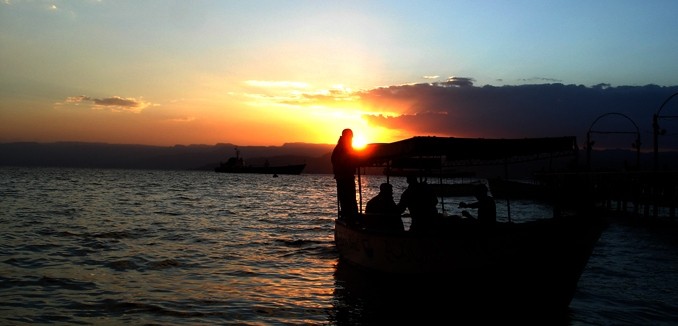A meeting between Jordanian and Israeli environmentalists in Aqaba recently has the green sector in both countries cautiously optimistic. It was the first time in 10 years that Israeli and Jordanian groups working to improve and conserve the coastal and marine environment in the Gulf of Aqaba came to the table. “Participants were excited and enthusiastic about the meeting and about the possibility to further meet in the future,” says Mare Nostrum Project initiator and coordinator Prof. Rachelle Alterman of the Technion-Israel Institute of Technology. The Mare Nostrum Project is an EU-funded cross-border initiative that explores ways of protecting the Mediterranean coastline.
Raanan Boral, academic program manager of the Mare Nostrum Project and a veteran environmentalist, tells ISRAEL21c that the Gulf of Aqaba is included in Mare Nostrum because “our project deals with the coast even though the shared coastline between Jordan and Israel is not on the Mediterranean.” Partners in the global initiative include universities, research institutes, municipalities, environmental NGOs and port operators from Malta, Greece, Israel, Jordan and Spain.
The project’s main goal is to bridge the policy-implementation gap between the ideals of the Barcelona Convention’s Protocol on Integrated Coastal Zone Management (ICZM) and its effects on the ground in conservation and management in the Mediterranean Basin. “Environmental issues on one side of the border immediately affect the other,” says Eilat-Eilot region environmental department head Asaf Admon, referring to the Evrona oil spill in December 2014. Admon says the latest meeting signals a renewal in joint work on issues of importance to both sides. (via Israel21c)
[Photo: Rusaila Bazlamit / Flickr ]




